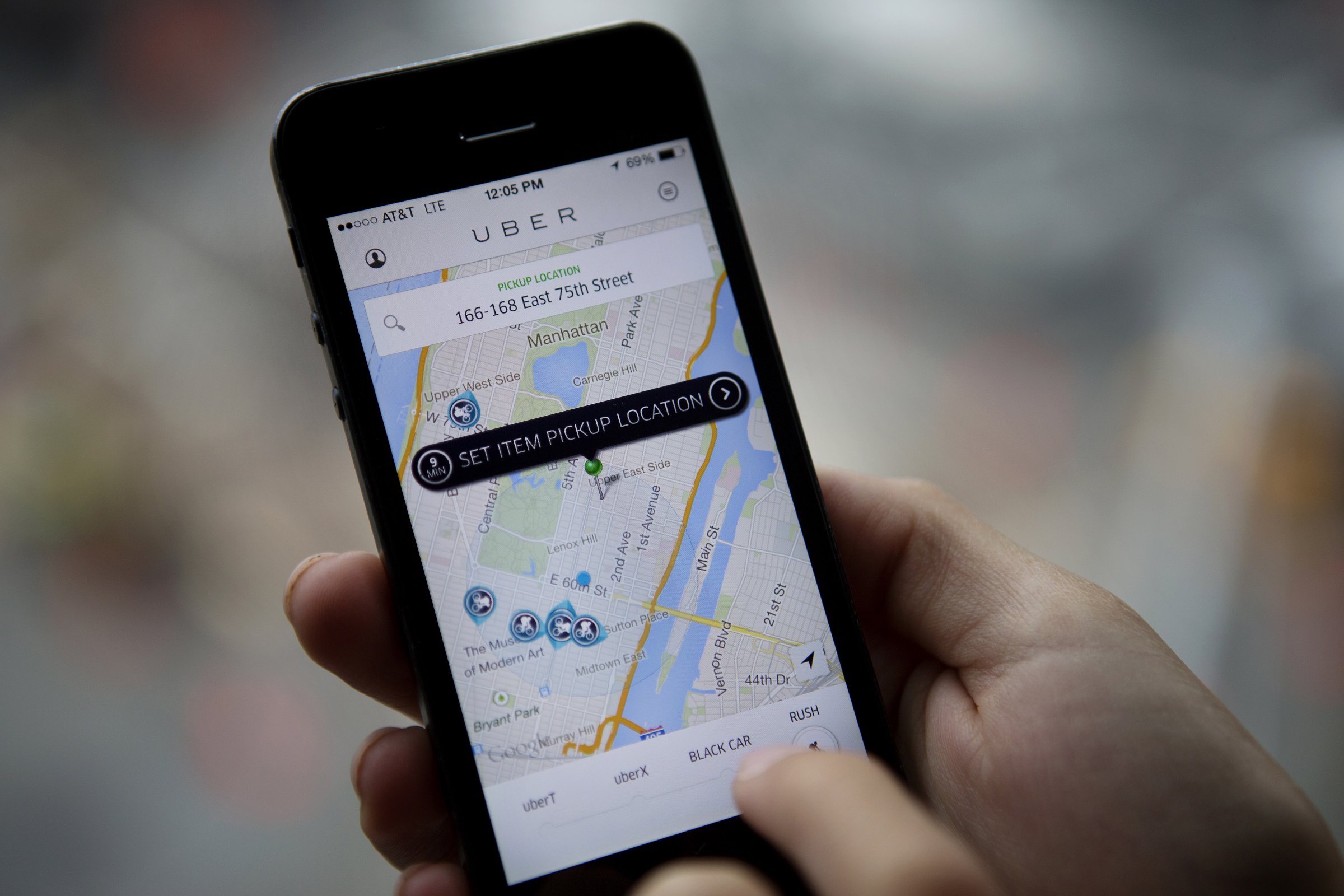
Uber has pulled off what few others can these days: The beloved car service has united politicians of all persuasions. Republicans, Democrats, and Libertarians are all vying to outdo each other in portraying the popular company, and its political struggles to avoid regulatory strangulation, as a poignant validation of their worldview.
Uber last month hired David Plouffe, President Obama’s former campaign manager and White House advisor, to direct its “campaign” against “Big Taxi” and local transportation regulators across the country. At the same time, conservative Republicans like Senator Marco Rubio and anti-tax crusader Grover Norquist championed Uber even though it is the darling of harried urbanites in Democratic enclaves like San Francisco and New York City.
Republicans understandably salivate at the sight of liberals, for once, railing against government overreach – excessive licensing requirements, taxes, and safety regulations – threatening a service they love. Is it too much of a stretch to hope that these ride-share fans might rise up to oppose similar government-imposed obstacles facing plenty of other American businesses – power utilities, financial companies, industrial manufacturers?
Good luck with that. The big regulatory clashes of the Internet era – the various iterations of net neutrality, the Microsoft antitrust case, the disputes over taxing online commerce, the Napster music download battles, the recent Aero TV Supreme Court case, and the current fight over how to regulate Uber, Airbnb, and other “sharing economy” firms – haven’t produced conceptual breakthroughs for how regulate other areas of the economy.
Instead, these “new economy” fights have deepened the dysfunction of our very old political system. Because they have typically involved definitional squabbles— Is Uber merely another limo company? Was Aero TV more akin to your old VCR or a rogue cable company? — and because it is so difficult to update old regulatory approaches, these Internet-era fights stand out for their brazen hypocrisy, cynicism, and intellectual inconsistency.
Take Uber. It’s hard to imagine Republicans cheering the company on if, instead of stealing market share from local union-controlled monopolies, it was stealing market share from a handful of large, publicly traded national taxi companies that had invested heavily in their infrastructure while satisfying regulations the new entrant was trying to avoid.
That alternative scenario is pretty much how things stand in the telecom sector, where Republicans have generally defended the prerogatives of incumbent players against regulators and new competitors preaching “net neutrality” (the principle that owners of the Internet’s pipes or airwaves cannot make separate deals with content providers on price or speed but must treat everyone equally).
But conservatives aren’t alone in their hypocrisy, or semantic creativity, when it comes to Uber. Liberal Uber lovers, instead of addressing cities’ burdensome transport regulations head-on, are more comfortable arguing that the company doesn’t belong in the same category as those old yellow taxis and limo companies. Uber, you see, is a technology company!
This sort of semantic nonsense has been a staple of all Internet regulatory fights. For a long time Internet enthusiasts felt it was OK to “share” copyrighted music and films online widely, since it was somehow different than old school piracy. And if you think Tesla shouldn’t be forced to sell their cars through third-party dealers, arguing that it’s a tech company that shouldn’t be subject to the old rules is far easier than seeking to take on the anachronistic and anti-consumer laws hurting all car companies. Better to create a loophole or carve-out for the new players than to bother modernizing the entire system.
The “sharing economy” moniker, as applied to the likes of Uber and Airbnb, is itself a brilliant but disingenuous fiction. What exactly am I “sharing” in an Uber transaction? As far as I can tell, the company owners are “sharing” with me a driver it has hired so long as I pay a certain amount of money to get from Point A to Point B. The service is good and prompt, but I am not sure what is being “shared” that my community’s yellow cab service doesn’t also “share” with me.
So let’s get real. The transformation of numerous industries by nimble players leveraging formidable information technologies on behalf of consumers is to be celebrated, but not to the point of pretending that things that are aren’t, or that aren’t are. There’s plenty of that already taking place in our traditional politics.
Andrés Martinez is editorial director of Zocalo Public Square, for which he writes the Trade Winds column.
More Must-Reads from TIME
- Donald Trump Is TIME's 2024 Person of the Year
- Why We Chose Trump as Person of the Year
- Is Intermittent Fasting Good or Bad for You?
- The 100 Must-Read Books of 2024
- The 20 Best Christmas TV Episodes
- Column: If Optimism Feels Ridiculous Now, Try Hope
- The Future of Climate Action Is Trade Policy
- Merle Bombardieri Is Helping People Make the Baby Decision
Contact us at letters@time.com